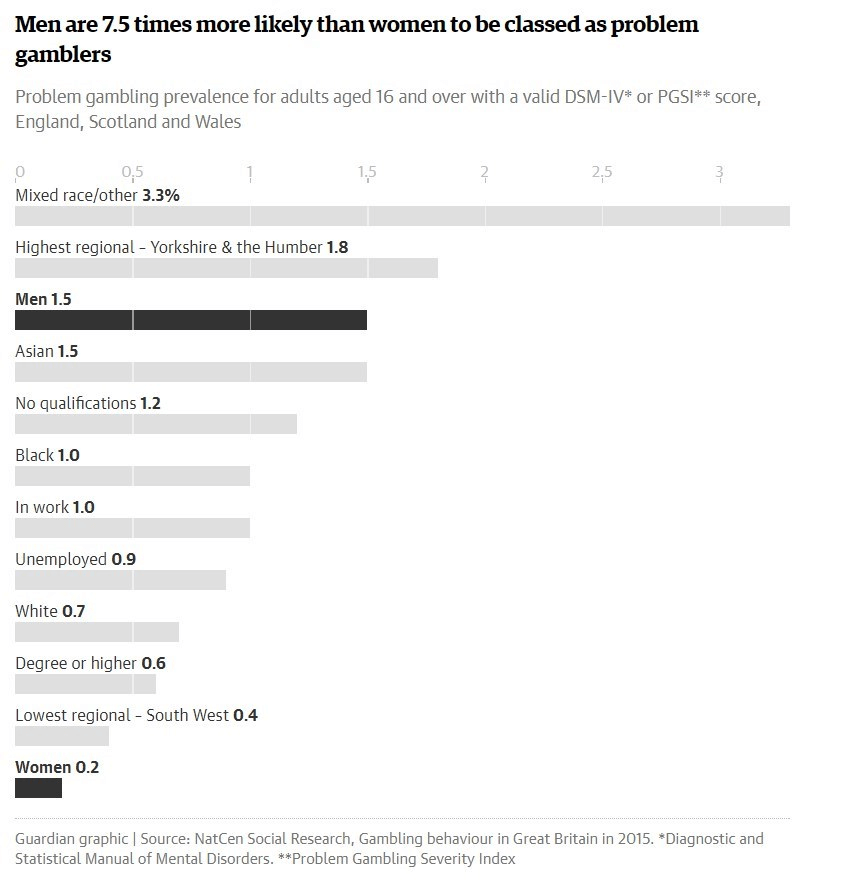Play responsibly
Gambling Addiction Myths – Separating Fact from Fiction

Gambling addiction is real and it effects millions of people worldwide. Unfortunately, there are many myths about gambling addiction that can lead to misconceptions about this serious problem. It’s these misconceptions that make it harder for a person to detect problem gambling in themselves or others.
Unlike a drug or alcohol addiction, gambling is often referred to as “the hidden addiction” due to the fact that it’s not usually detected by friends and family members of the gambler, until the final stages of the addiction have taken hold. As Raymond Dixion, lead addiction counsellor at the Nightingale Hospital London points out, problem gamblers “are not like the alcoholics – the breath does not smell of dice.”
With that in mind, here are 7 common gambling addiction myths you should be aware of to further your understanding of this serious and life-destroying problem.
Myth #1 – You have to gamble every day for gambling to become a problem.
Fact: How frequently someone gambles is not always an indication of them having a problem. According to Dixion, although some gamblers do bet every single day, some may only bet sporadically, and this can still be just as damaging to their lives and the people they care about. What indicates an addiction is a person’s inability to stop gambling, which has nothing to do with how often they do it.
Myth #2 – Gambling addiction effects only men.
Fact: Problem gambling effects both men and women and also effects the young and old. Al-though research has found that men and women display the same signs when their gambling habit is out of control, a study conducted by researchers at the University of Adelaide, the Australian Gambling Research Centre (AGRC) and Swinburne University of Technology in Australia, found that how the two different genders handle the distress that results from their addiction, is different. The study found that male gamblers tend to behave aggressively (e.g. become angry when they lose), while female gamblers tend to react emotionally (e.g. cry or look depressed when they lose).

Source: https://www.theguardian.com/society/2017/aug/24/problem-gamblers-uk-gambling-commission-report
Myth #3 – Responsible people don’t become gambling addicts.
Fact: It is a common misconception that only those who have weak willpower or who are irresponsible suffer from addictions. The reality is that anyone can become addicted to gambling, regardless of how responsible they might be. Problem gambling is an impulse control disorder. Just like being addicted to drugs or alcohol, it is characterized by obsessive and compulsive behaviour. Once the person becomes caught up in their addiction, they will continue to feed it despite negative consequences, and even if they are in mounting debt and are putting their career and personal relationships at risk.
Myth #4 – Problem gamblers will bet on anything.
Fact: Simply because a person might be a gambling addict does not mean that they are willing to bet their money on anything. Quite the opposite is true. For instance, a gambler who always visits the blackjack table at the casino might not be tempted to purchase lottery tickets or bet on slot machines.

Myth #5 – Compulsive gambling isn’t a problem if the person can afford it.
Fact: Even if a person can afford to lose the money they bet, this doesn’t mean that their actions are not problematic. Gambling addiction doesn’t only impact the person’s bank account. It also interferes with other areas of their life, including their career, professional reputation and their relationships with family and friends. It is the behaviour of the gambler that is the true problem, not the financial consequences that may result from the activity.
Myth #6 – Gambling addicts are greedy.

Fact: Believe it or not, but while gambling addiction is about many things, a desire to be rich is not one of them. According to Dixion, there are two main types of gamblers: Escape Gamblers and Action Gamblers. Typically speaking, Escape Gamblers play games of chance, such as slot machines. For this type of gambler, engaging in gambling is about escaping the reality of their day-to-day life. Action gamblers, on the other hand, generally play games of skill, such as poker. It is believed that these gamblers tend to want to reduce their poor self-esteem.
Myth #7 – Problem gambling only effects the gambler

Fact: Addiction – no matter what it might be – is a disease that effects everyone close to the person who has the problem. This is true for alcoholics, drug addicts, gambling addicts, and so on. In some cases, the addiction may be harder on those who don’t have the gambling problem. The reasons may be that they are on the receiving end of the addict’s mood swings, lies and manipulations, and are constantly in worry over the financial crisis. Some people even blame themselves for the person’s addiction, feeling that they must have done something wrong to have caused it. Addiction is a “family disease”.
If any of the myths listed above are a reality for you or someone you care about, it may be time to seek the proper support. Always know that you are not alone and there is help.






















